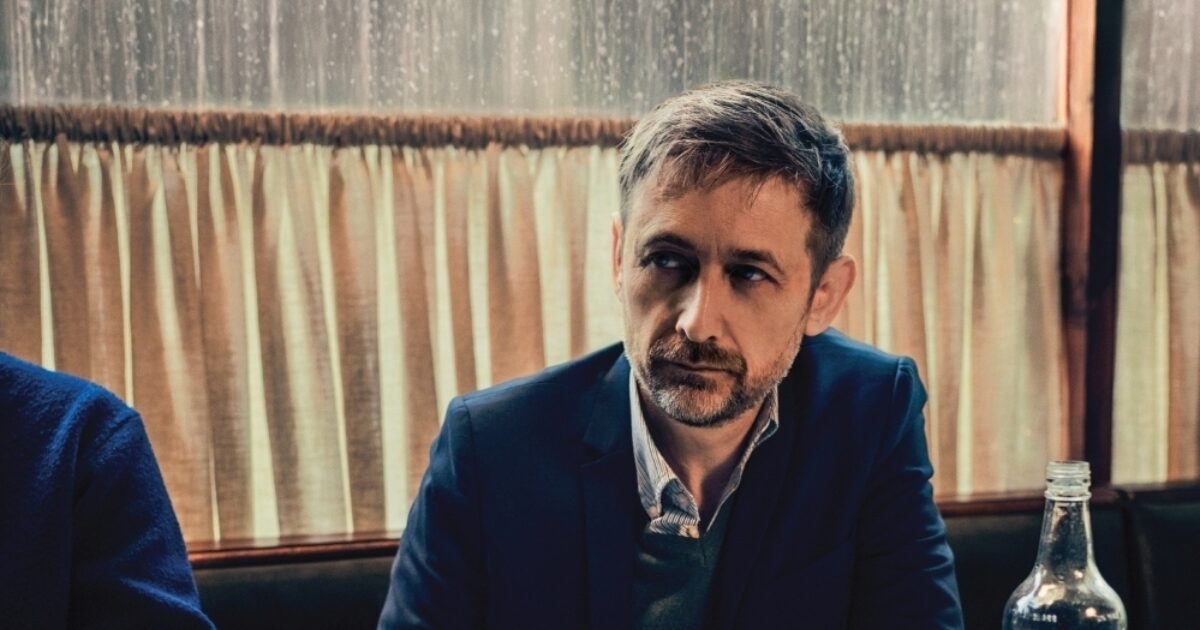

It’s the final night of The Divine Comedy’s UK tour and Neil Hannon – frontman, songwriter and only constant member since the band’s inception in 1989 – arrives on stage looking dapper in a dark suit, neatly brushed hairdo and trilby hat. His holding a pint of Guiness could either be a celebratory marker of the tour’s end or Hannon merely defaulting to his roots as a stolid Northern Irish native. The current nationwide tour – the band’s first since the pre-covid before times of 2019 – is in support of last month’s critically acclaimed thirteenth studio album Rainy Sunday Afternoon.
It’s an album wherein Hannon has mined the personally poignant to deliver something contemplative and sombre, yet orchestrally attractive and melodic. Thus, the opening couplet of ‘The Last Time I Saw The Old Man’ wears its theme starkly upon its shoulders (“he was moving very slowly, and he didn’t seem to know me”) but the reverbed guitar stabs, pounding keys and swirling violin, along with some achingly mournful accordion, produce sonics so pretty as to effectively leaven its message.
The title track from the new album – which appears to be lamenting the intra-relationship claustrophobia of the Covid period – is one of many examples of Hannon’s songwriting being imbued with an essence very much in line with musical theatre. The band often transcend their default description as “chamber pop” but one can easily imagine the song’s emotive, keyboard led momentum shifts featuring on a West End Stage.
Later, ‘Bang Goes The Knighthood’, introduced by Hannon as a song “written when politicians had shame”, is another case in point; the elevated dramatic timbre of the song’s bridge distinctly feels as music holding a mirror to a character’s psychological state. This is further driven home with Hannon falling to his knees as he delivers the lyric “so chain me, restrain me and teach me to kneel”. It’s no coincidence that, in recent years, Hannon has become something of a go to composer for musicals (he wrote original songs for 2023 film Wonka and the now abandoned Father Ted musical).
An enduring subplot of the show’s first half is Hannon’s faulty amp crackling away at inopportune moments. “My amp’s beginning to melt,” says Hannon, “it’s not like I’m playing Jimi Hendrix type licks on it.” As the technical issues become clear, 1998 favourite ‘Generation Sex’ is aborted first time round, and there’s an impromptu reshuffling of the setlist as the more acoustically amenable tracks ‘My Lovely Horse’ and ‘A Lady of a Certain Age’ bridge the gap while a sound technician scrambles to replace the errant equipment.
Once normal service is resumed, there is an enjoyable run of tunes which, outside of Hannon’s admirable versatility in melding his songwriting with everything from vaudeville, music hall and jazz, highlight that The Divine Comedy’s best moments often take the form of more straightforward, hook-laden indie pop; ‘Generation Sex’ is an instantly catchy lament of prurient 90s culture, the ascending four chord motif of ‘At The Indie Disco’ burrows its way into the brain and ‘Neapolitan Girl’ is delightfully jaunty, retro-inflected pop.
After a sound tech wheels out a trolley full of drinks, Hannon role-plays making cocktails for his bandmates and it serves as a unique way to introduce each member to the audience. This all acts as the intro to ‘Mar-a-Lago By The Sea’, a loungey pastiche which amusingly imagines an imprisoned Donald Trump looking back fondly on his decadent resort getaway: “Making turgid wedding speeches/Entertaining fascist leeches.”
When Hannon gives us, the fully seated audience, permission to take leave of our chairs, it reveals a surprisingly fundamental shift in behaviour; a seated position equals stagnant observance and polite applause while taking to one’s feet instantly results in arms-aloft singalongs and dancing in the aisles. This all begins with upbeat 1996 favourite ‘Something For The Weekend’ and Hannon’s insistence that the crowd remain standing assures that ‘Absent Friends’ is preserved as a celebratory, rather than mournful, remembrance of the departed.
“Now we dance”, Hannon states as he breaks into a twist at the intro to the incessantly chipper ‘National Express’, the 1999 single that reached number eight in the UK charts and remains the band’s only foray into the top 10. “You’ve been fabulous, we’ve been medium” Hannon tells the audience as the evening draws to a close. With the declarations of “I love you, Neil” that have been heard throughout, many obviously beg to differ. Despite the technical issues, Hannon and his fellow musicians have re-emerged as a unique and endlessly musical force.
Scott Hammond